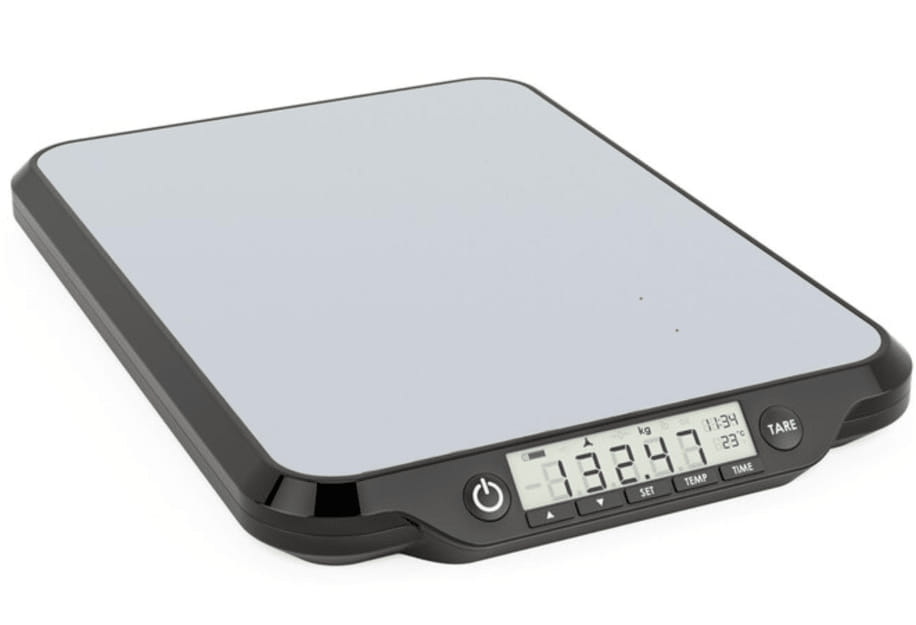In today’s fast-paced industrial environments, efficiency and accuracy are paramount, and remote control floor scales are proving to be invaluable tools in achieving both. These advanced scales are designed to offer enhanced functionality by allowing users to operate and monitor the weighing process remotely.
This feature is particularly beneficial in various sectors, including manufacturing, warehousing, and logistics. Understanding the key benefits and applications of remote control floor scales can help businesses optimize their operations and improve overall performance.
What Are Remote Control Floor Scales?
Remote control floor scales are a sophisticated type of weighing equipment that combines traditional floor scale functionality with modern remote control technology.
Unlike conventional floor scales, which require direct interaction for operation, remote-controlled floor scales enable users to manage and monitor the weighing process from a distance. This is made possible through wireless communication systems and remote displays.
- Wireless Communication is a fundamental component of these scales, allowing for seamless operation without the need for physical contact. This technology transmits data between the scale and the remote control or display unit, providing real-time updates on weight measurements.
- Remote Displays are another critical feature, offering a convenient way to view weight readings from a distance. These displays can be placed in a location that is easily visible to operators, reducing the need to be physically present at the scale, which is especially useful when dealing with large or heavy loads.
Key Benefits of Remote Control Floor Scales
- Improved Efficiency is one of the primary advantages of remote control floor scales. By allowing operators to control the scale remotely, these systems reduce the need for manual handling and streamline the weighing process. This results in faster operations and less downtime, which can significantly boost overall productivity.
- Enhanced Accuracy is another major benefit. Remote control floor scales are designed to minimize human error, providing precise and reliable measurements. This accuracy is crucial in industries where exact weight readings are necessary for quality control, inventory management, and regulatory compliance.
- Increased Safety is a significant advantage of using remote control floor scales. With the ability to operate the scale from a distance, personnel are less exposed to potential hazards associated with heavy or moving loads. This reduces the risk of injury and ensures a safer working environment.
- Greater Flexibility is also offered by remote control floor scales. They can be adapted for use in various industrial settings, including manufacturing, warehousing, and logistics. This flexibility allows businesses to use the scales in different applications, such as weighing bulk materials or managing inventory, enhancing overall operational efficiency.
Applications of Remote Control Floor Scales
Manufacturing is one of the key areas where remote control floor scales are highly beneficial. In manufacturing processes, these scales can be used to weigh large quantities of materials or finished products with high accuracy. This helps in maintaining consistent quality and streamlining production processes.
In warehousing and logistics, remote control floor scales play a crucial role in managing inventory and improving operational efficiency. They facilitate the weighing of incoming and outgoing goods, aiding in accurate inventory tracking and faster processing times. This is particularly valuable in busy distribution centres where speed and accuracy are critical.
Retail and distribution centres also benefit from the use of remote control floor scales. These scales help streamline operations by enabling efficient handling of bulk items and ensuring precise weight measurements for quality control. For example, they can be used to weigh products before shipment, ensuring that customers receive accurate quantities.
Choosing the Right Remote Control Floor Scale
When selecting a remote control floor scale, there are several factors to consider. Weight capacity is crucial, as the scale must be able to handle the maximum load it will be subjected to. Accuracy is another important consideration, as precise measurements are essential for quality control and inventory management.
Integration with other systems is also a key factor. Ensure that the remote control floor scale can be seamlessly integrated with existing systems, such as inventory management or data analysis tools, to optimize operational efficiency. Features that support data management and analysis can further enhance the utility of the scale.
Conclusion
Remote control floor scales are transforming the modern industry by offering enhanced efficiency, accuracy, and safety. These advanced scales provide significant benefits across various sectors, including manufacturing, warehousing, and retail.
By understanding their applications and choosing the right scale for your needs, you can leverage these tools to improve your operations. Embracing remote control floor scales can lead to more streamlined processes and better overall performance in your industry.

